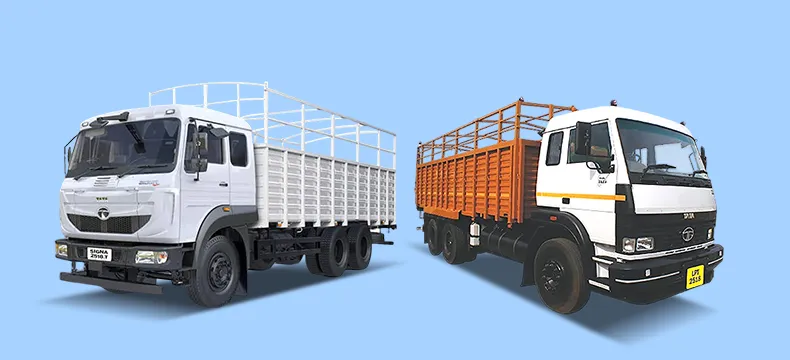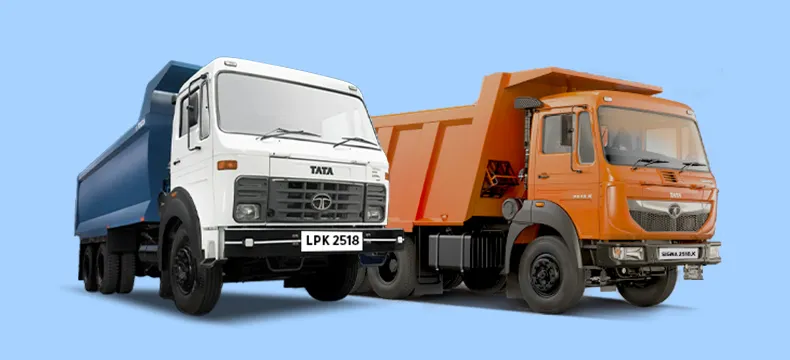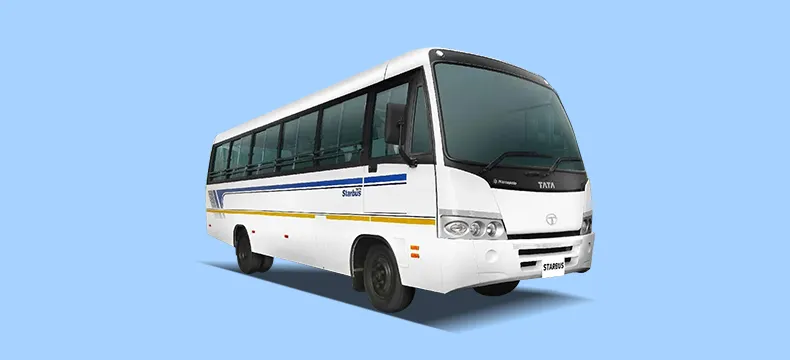11 Mar 2025

Enhancing Construction Productivity: The Contribution of Tipper Trucks in Bangladesh
- Tata Motors
- 6 Dec 2023
- Commercial Vechicle
Introduction
Construction is the backbone of any country's progress. It shapes cityscapes, connects communities, and fuels economic growth. Construction has been a driving force behind Bangladesh's success as a fast-rising nation. With a population of over 160 million people and rapid urbanization, infrastructure development and building have become critical. The importance of tipper trucks in this quest for growth cannot be overstated. They are the hidden heroes of construction sites, enabling material transportation and greatly contributing to increased production. In this blog, we will look at how tipper trucks play an important part in Bangladesh's building industry and how they are paving the road for progress.
Construction's Impact on Bangladesh
Over the last two decades, Bangladesh has enjoyed amazing economic growth. According to the World Bank, its GDP has expanded at a constant annual pace of roughly 6% since the early 1990s. The rise of the building and infrastructure sectors is largely responsible for this growth. Investments in roads, bridges, ports, and other critical infrastructure not only boosted internal connectivity but also increased overseas trade and investment.
Construction Drivers in Bangladesh
Several reasons contribute to Bangladesh's strong construction growth:
Urbanization: Bangladesh is undergoing a historic change from rural to urban living. The capital city, Dhaka, is one of the world's fastest expanding megacities. This urbanization trend necessitates significant investment in housing, transportation, and utilities, which drives construction activity.
Infrastructure Development: The Bangladeshi government has begun major infrastructure initiatives. These include building highways, bridges, ports, and power plants. Improved infrastructure not only improves internal connectivity but also invites foreign investment and trade.
Population Growth: As the country's population grows, more housing and commercial space is required. As more people migrate to cities in quest of greater prospects, the construction industry must adapt to satisfy this demand.
Bangladesh has become a global manufacturing centre, particularly in the textile and garment industries. This economic boom has resulted in greater investments in industrial and commercial facilities.
Opportunities and Challenges
Infrastructural Deficits: Despite substantial development, Bangladesh still has infrastructural deficiencies. The government's commitment to closing these gaps creates chances for growth in the building industry.
Regulatory Obstacles: Simplifying rules and permitting processes can make it easier to do business in the construction industry. Procedures that are simplified can attract more investors and developers.
Environmental Sustainability: It is critical to ensure sustainable construction processes in order to reduce environmental effects. Green building approaches and materials can assist in balancing development and environmental preservation.
Skilled Labor Scarcity: The sector is facing a skilled labor shortage, emphasizing the importance of vocational training programs in developing a productive workforce.
The Demand for Tipper Trucks
Construction projects, whether large-scale infrastructure development or small-scale residential ones, rely largely on efficient construction material transportation. Sand, gravel, cement, and several other aggregates are examples of these materials. Tipper trucks come into play in this situation.
Bangladesh's diverse topography, which includes plains, rivers, and hilly areas, presents unique challenges for transporting construction materials. Tipper trucks are versatile enough to navigate through these various terrains, ensuring that materials reach their destination, whether it's a remote rural construction site or an urban center. Their ability to adapt to different road conditions is a significant advantage in a country with varying landscapes.
Tipper trucks offer a cost-effective solution for material transport. They are efficient and capable of carrying substantial loads, reducing the number of trips needed to transport materials. This not only saves time but also reduces fuel consumption, minimizing operational costs for construction companies. In an industry where every penny counts, tipper trucks are an economical choice.
Time is a valuable resource in construction. Delays in material deliveries can halt projects, leading to increased labor costs and missed deadlines. Tipper trucks are designed for quick loading and unloading, which minimizes waiting times at construction sites. This time-saving efficiency is crucial in keeping construction projects on schedule.
Bangladesh has experienced a significant increase in large-scale construction projects, such as highways, bridges, ports, and power plants. These endeavors demand a continuous and substantial supply of construction materials. Tipper trucks play a crucial role in ensuring the swift and reliable transportation of these materials to meet the requirements of these ambitious projects.
Actual Contribution of Tipper Trucks in Bangladesh
Transportation Volume: Tipper trucks play a significant role in transporting construction materials in Bangladesh. On average, a standard tipper truck in the country can carry between 10 to 20 tons of materials per trip.
Market Size: The tipper truck market in Bangladesh is substantial, with thousands of these trucks operating nationwide. As of September 2021, there were over 20,000 registered heavy-duty trucks in Bangladesh, and a significant portion of them are tipper trucks.
Employment Generation: The tipper truck industry contributes to job creation in Bangladesh, employing thousands of individuals directly or indirectly. This includes drivers, maintenance personnel, loaders, and administrative staff associated with trucking companies.
Construction Projects: Tipper trucks play a crucial role in supporting various construction projects in Bangladesh. They transport materials for road construction, building projects, and large-scale infrastructure initiatives. The volume of materials transported reflects the significant contribution of tipper trucks to these projects.
Economic Impact: The tipper truck sector, closely linked to the construction industry, has a substantial impact on Bangladesh's economy. As of 2021, the construction sector accounted for approximately 8% of the country's GDP. Efficient transportation of materials, primarily carried out by tipper trucks, plays a vital role in this economic output.
Infrastructure Development: The construction of highways, bridges, ports, and other infrastructure projects in Bangladesh requires millions of tons of construction materials. Tipper trucks play a crucial role in delivering these materials to project sites, facilitating the nation's infrastructure development.
Conclusion
Tipper trucks have made a significant contribution to increasing construction productivity in Bangladesh. They are critical in ensuring that construction materials get at their destinations in a timely and cost-effective manner. As Bangladesh progresses and develops, the construction industry and its constant companions, tipper trucks, will stay at the forefront of this transformation. They are more than simply vehicles; they are the driving force behind the nation's hopes for a better future. Bangladesh is well on its way to a brighter tomorrow, one brick at a time, thanks to their unflinching support.
- Tags





















